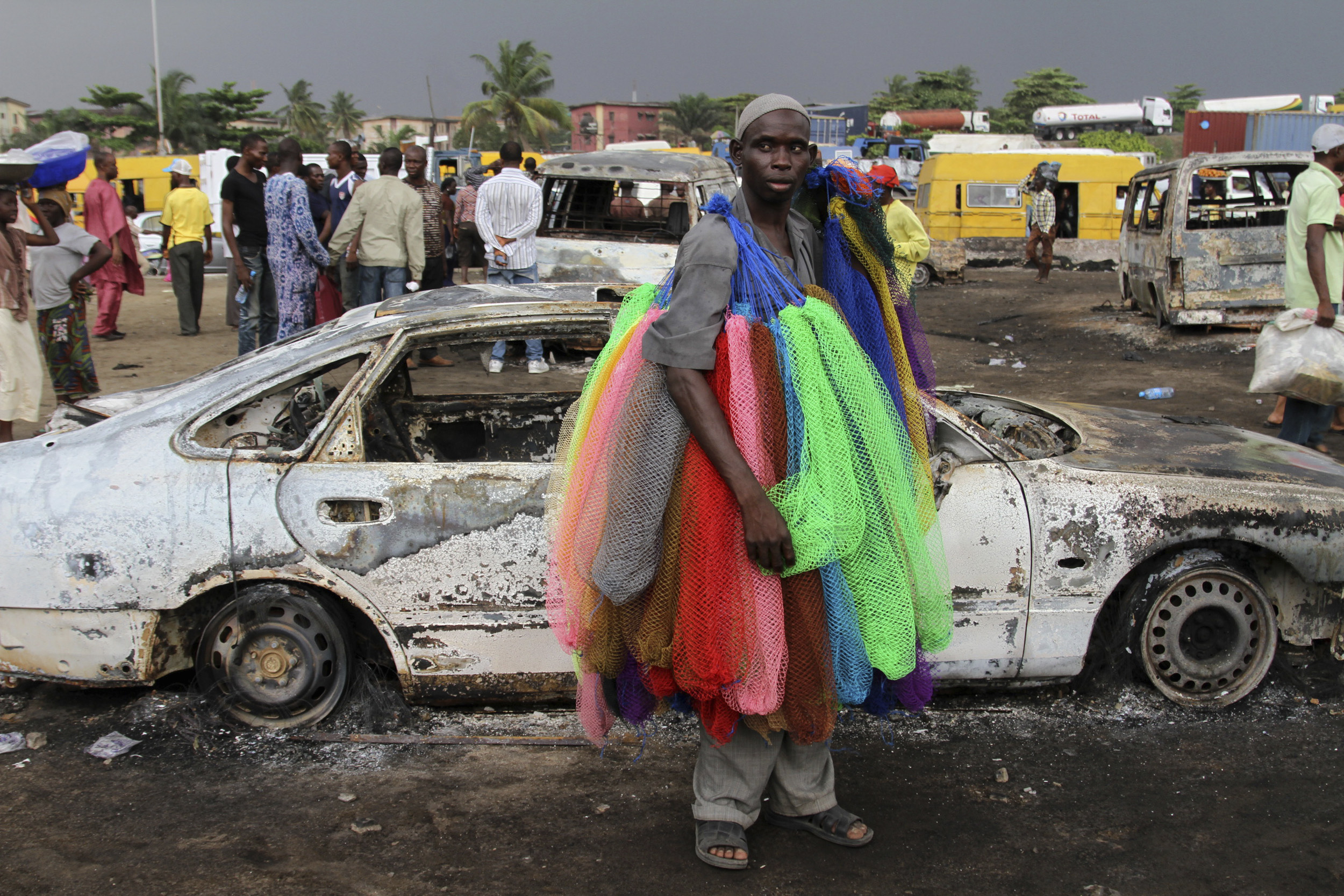Nigerian, gay, and caught between asylum policies

O.* has been in prison for many weeks now, and those who have been to visit him regularly say he’s aged by several years in that time. He applied for asylum in Switzerland because, he says, the people in his village – including his own father – tried to kill him for being gay.
After his asylum request was denied, he went underground, landed in prison and now awaits news of whether he’ll be forcibly returned to Nigeria.
Today, the man sitting on the other side of the glass looks tired but alert, eager to talk to someone – anyone – and hear about what’s going on on the outside. He’s heard the protests outside his window calling for his freedom, and he wants reassurance that no one was hurt or arrested during them because of him.
And then he launches into his story, the details of which are difficult to verify independently.
He and his boyfriend left Lagos in 2009 because their efforts to hide there from those who wanted them dead had failed. Someone had found them through their landlord, and they needed to get out.
So they hired smugglers to get them to Morocco, where they eventually boarded a boat and made it to Spain. There, someone told them they would never be able to get a job and that they should board a bus full of other migrants bound for Switzerland. After two days of travel, they arrived, asked the nearest dark-skinned person for help, and were directed to the asylum centre in Vallorbe, canton Vaud.
“In Vallorbe, they didn’t believe anything I was saying,” O. tells swissinfo.ch. “I told them how I was beaten by my fellow villagers, who said I am an abomination and that if crops fail or women die in childbirth, it’s because of [me and my boyfriend].”
He lifts up his shirt to show long scars running down his back which he says are from the beatings.

More
A fresh start in Nigeria, brought to you by Switzerland
Requests denied
O.’s asylum application was processed under a new “fast-track” system implemented last year under a broader migration partnership between Nigeria and Switzerland. In his case, that meant a rejection came soon after his initial interview with migration authorities. O. says he was rejected because migration authorities didn’t believe his story.
When O. tried to appeal his case on his own, his lawyer said he didn’t have a chance without a passport or proof (such as photos) that he and his partner had known each other and been in a relationship. O. said he didn’t have either of those things because “I ran for my life” when fleeing Nigeria.
When another attempt was made to appeal O.’s case in 2013, this time with the help of a Swiss immigrant aid organisation, migration authorities believed his story but rejected his request because he could live out his lifestyle “discreetly” in his home country, thereby avoiding persecution.
Martin Reichlin of the migration office couldn’t comment on O.’s individual case, but he did say that the practice of assuming homosexuals could live under the radar in their countries of origin ended “about four years ago” in Swiss asylum policy. That’s no longer a grounds for rejecting a homosexual asylum seeker, he said.

More
Gays face tough road to asylum
Fleeing deportation
O. went underground after his first asylum request was denied, fearing what would happen to him if he was deported back to Nigeria. Under recent legislation, homosexuals there face some 14 years in prison, in addition to violence and discrimination. O. says his boyfriend, who was deported from Switzerland, was forced to undergo exorcist rituals upon his return to Nigeria, including being dragged naked around his village on a cart, and had to swear off homosexuality forever. Organisations such as Human Rights Watch call the situation for gays in Nigeria “dangerous,” especially after a sweeping anti-gay law was passed earlier this year, and the Associated Press reported in March that four young men convicted of gay sex were whipped on the floor of the courtroom as punishment.
O. eventually ended up in Geneva, staying in the apartment of an acquaintance. When the apartment was raided by police on suspicion of drug operations taking place there, O. was picked up. He’s now in prison for staying in Switzerland illegally. He insists he had no knowledge of what was going on in the apartment and was just using it as a place to sleep.
Since then, O. has been behind bars while advocacy groups try to prevent his deportation. They believe that his situation would be different if he were to come to Switzerland today instead of four years ago because asylum policy towards homosexuals has evolved, sensitivities have generally improved, and gay asylum seekers are no longer told to go home and live more discreet lives in countries where homosexuals are persecuted. But since O.’s case had already been decided and he broke the law, his fate was sealed.
However, advocates for O. were able to prevent his having to sign a so-called laissez-passer document that would have facilitated his deportation, since he has no passport. And on May 10, they handed the migration office a new asylum request on his behalf, a move that Reichlin says “generally puts a halt to a deportation process” while the new request is looked over.
On May 27, the migration office announced it was “temporarily halting” O.’s deportation.
Meanwhile, he sits in prison, waiting for news from the outside.
*Name withheld

In compliance with the JTI standards
More: SWI swissinfo.ch certified by the Journalism Trust Initiative

You can find an overview of ongoing debates with our journalists here. Please join us!
If you want to start a conversation about a topic raised in this article or want to report factual errors, email us at english@swissinfo.ch.